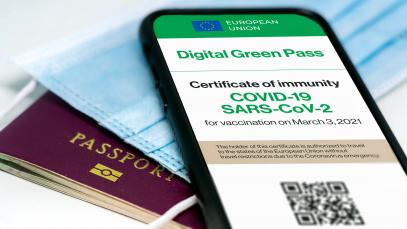-
Digital solutions, vaccination to ease travel restrictions
-
29 percent of all destinations worldwide closed for international tourism
About 31 percent of all travel destinations in the Middle East remain closed due to Covid-19 restrictions, a UN report said, as it expected global vaccination rollout and increased adoption of digital solutions for safe travel to lead to a rise in international mobility over the weeks and months ahead.
The Travel Restrictions Report of the UN World Tourism Organization released Monday said that as of June 1, 29 percent of all destinations worldwide have their borders completely closed to international tourism.
Of these, more than half have been completely closed to tourists since May 2020 or longer, with the majority of these belonging to the Small Island Development States of Asia and the Pacific.
In comparison, just three destinations (Albania, Costa Rica, Dominican Republic) are completely open to tourists, with no restrictions now in place.
In Asia and the Pacific, 70 percent of all destinations are completely closed compared with just 13 percent in Europe, as well as 20 percent in the Americas and 19 percent in Africa.
One in three (34 percent) of all destinations are partially closed, and 36 percent request a negative Covid-19 test result upon arrival, in some cases in combination with a requirement to quarantine.
The data confirms the trend towards destinations adopting more nuanced, evidence-and-risk-based approaches to restrictions on travel, particularly in light of the evolving epidemiological situation and the emergence of new variants of the virus, the report reads.
Indeed, 42% of all destinations have introduced specific restrictions for visitors from destinations with variants of concern ranging from the suspension of flights and closing of borders to compulsory quarantine.
Additionally, since most of those destinations with the strictest measures have some of the lowest rates of vaccination, the data also indicates a link between vaccination speed and easing of restrictions.
In comparison, those destinations that have higher rates of vaccination and where countries are able to work together on harmonized rules and protocols such as those being employed in the Schengen area of the European Union, are better-placed to allow tourism to slowly return.
“Governments are instrumental for the restart and recovery of tourism through collaboration, use of data and digital solutions,” said UNWTO Secretary-General Zurab Pololikashvili:
Assessing current requirements for vaccinated passengers, 17% of all destinations worldwide specifically mention vaccinated passengers in their regulations.
The report indicates that the restart of global tourism will remain muted so long as governments continue to advise caution. Four of the 10 top source markets, which generated 25 percent of all international arrivals in 2018, keep advising their citizens against non-essential travel abroad.
Bullet Points








